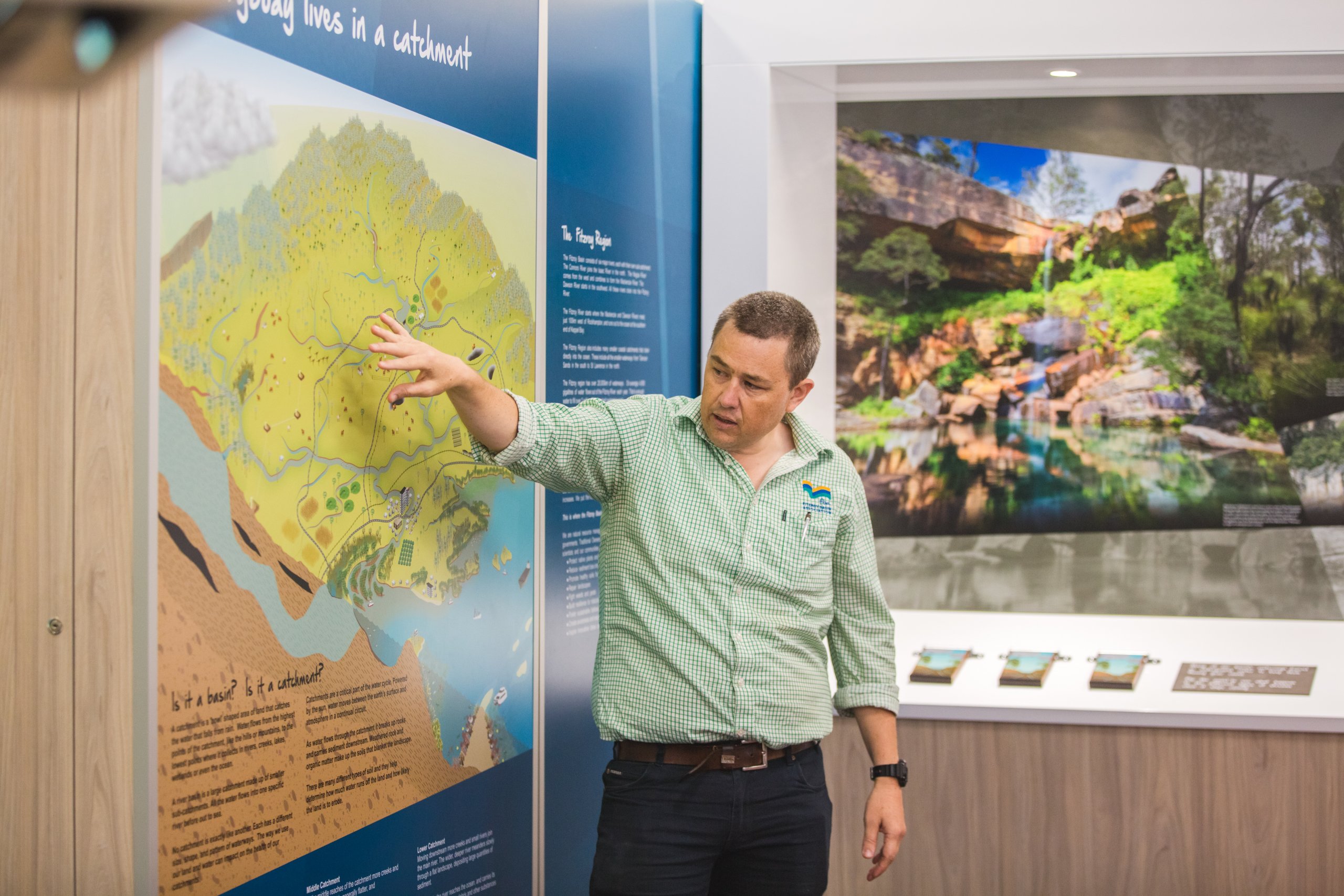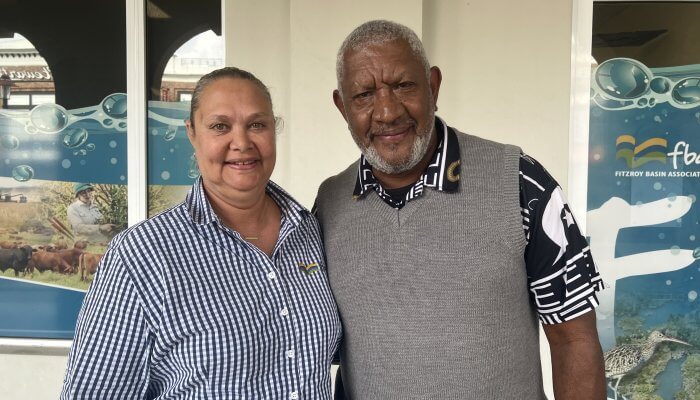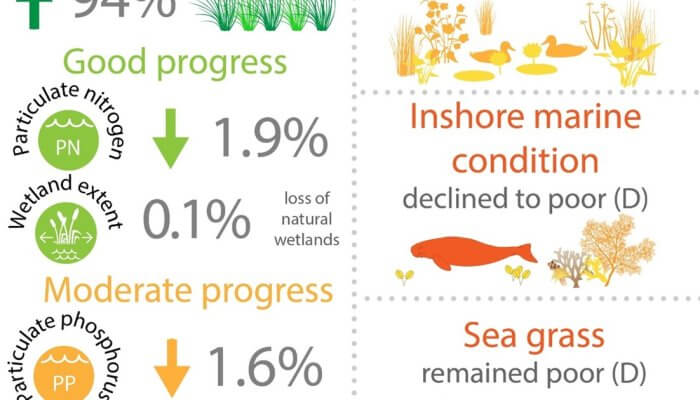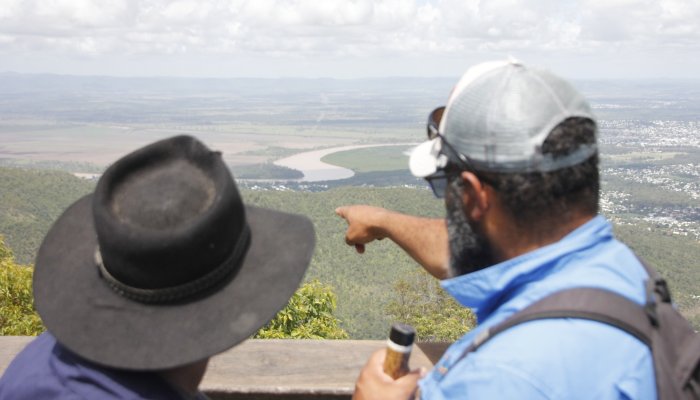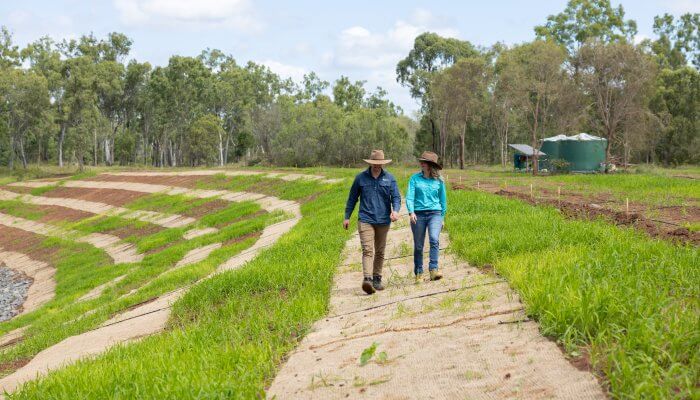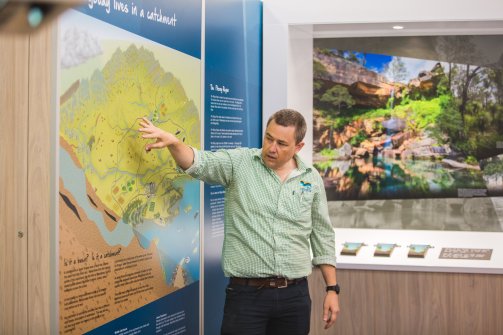
Meet the Fitzroy region’s Climate Mate – Dan!
Posted on September 14th, 2020
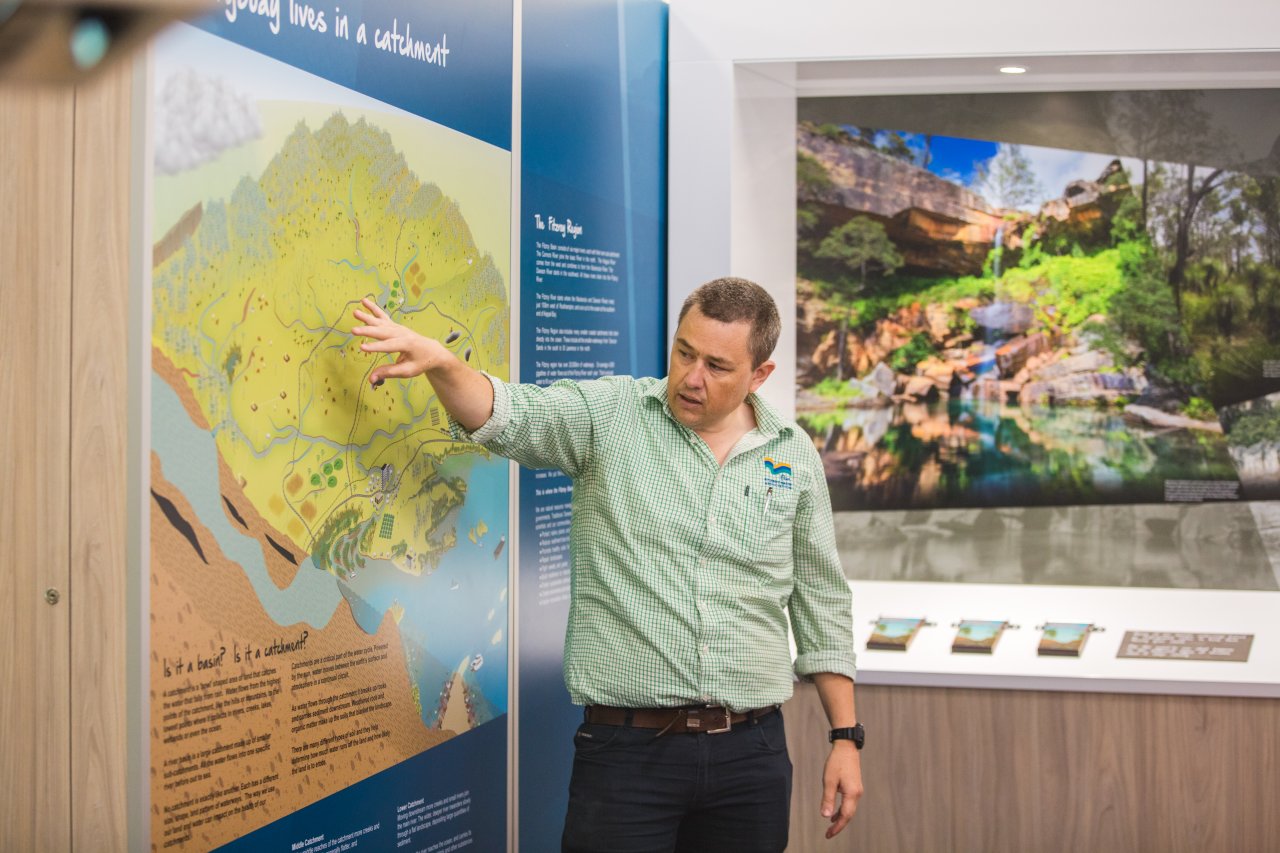
We are proud to announce that FBA’s Science Engagement Officer Daniel Rea has been appointed as a Climate Mate for the Fitzroy region. In this role, Dan will help extension staff, landholders and advisors adopt tools to improve their weather and climate forecasting skills.
Here is a quick insight into the role and how Dan will act as a support in the Fitzroy region.
What is your background/career?
I was a science teacher for many years after which I have worked in various education outreach roles for CSIRO, Queensland Minerals and Energy Academy (QMEA) and now FBA. I share the role of Climate Mate with my work as a Science Engagement Officer with Fitzroy Basin Association. As I love combining my skills in education with my new-found knowledge of environmental management and agriculture, to present the science that can make a difference to our future.
In the current setting within natural resource management, I believe the key for the future lies with students and I am deeply passionate about igniting a love for science, our natural environment and inspiring youth to understand the world around them.
What does your role entail as a Climate Mate?
FBA work within the country’s premier beef producing region, on country that is also home to the largest river system on the eastern seaboard of Australia. As a Climate Mate, I’ll be able to provide information to our network of landholders within the region on current and accurate climate advice so that they can make informed decisions for their properties.
I’m keen to create opportunities for the people of central Queensland to learn more about the drivers that shape our widely varying climate. In fact, our region has one of the most variable climates on Earth. Our region has experienced a number of natural disasters and unfavourable climatic conditions. Within five years parts of our region have experienced sustained drought, significant bushfires, extended dry seasons, floods and tropical cyclones. it’s really exciting to be able to offer regionally specific information on how we can adapt and thrive, and I expect that I’ll be able to do this at regional events, online, through one-on-one advice as well as through FBA’s Flow Centre.
What are you looking forward to in your role?
We are huge advocates for holistic approaches to farming at FBA, and climate is a predominant influence in planning and management decisions for landholders. I am really excited to help them make important production decisions based off real time climate information that is specific to their immediate area, and not based on data that was collected 500km away or even further afield.
Being able to offer insight into when the wet season is coming, what to anticipate, giving pathways to information and building our regional capability in interpreting this available information is a tool that. And let’s be honest, given the way 2020 has panned out – any opportunity to get out of the office and into wide-open space across central Queensland is very welcomed.
What’s something “unexpected” about you or your work?
After completing a science degree in marine ecology straight out of high school I also studied education and followed that path for about 20 years. I have come full circle now as I am about to complete my Masters in Environmental Management (at University of New England) and my marine ecology background comes in handy each day at FBA with the work we do to contribute positively improve water quality and reef health.
What excites you about agriculture?
My colleagues and I at FBA are so inspired by innovative landholders in our region trialling new methods (regenerative agriculture) on their farms to make them less susceptible to weather patterns beyond their control.
The concept that producing healthy food locally can be part of a global solution is very exciting to me. FBA looks for opportunities to bring influential producers and experts to the region to share their learnings on sustainable practices. We see so many engaged, courageous landholders make on-farm changes and commit to innovative management decisions that increase their long-term viability and production. Being a witness to these transformations is awe-inspiring.
Working side-by-side with farmers is also really exciting. They are without doubt, some of the best multidisciplinary scientists we have in Australia. How many people can use a good understanding of genetics, engineering, ecology, hydrology & physics on a near daily basis and implement the learnings of real life experiments they conduct year after year?
What is something you’d like the general public to know/do/consider about climate/NACP?
I would really love everyone, regardless of who they are, to take the time to engage with the amazing tools and instructional resources of NACP and the BOM to better understand how our climate works and to know exactly what a weather forecast means. Oh, and turn the lights off when you leave the room!
If you would like to better understand how our climate works and to know exactly what a weather forecast means contact Dan (daniel.rea@fba.org.au).
To learn more visit –https://www.nacp.org.au/outreach/climate_mates





